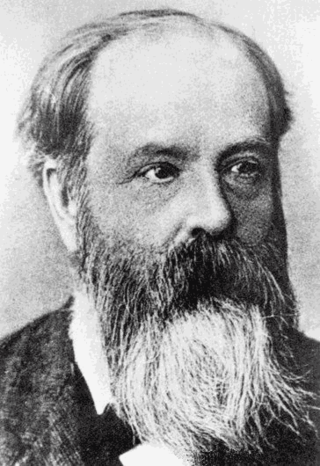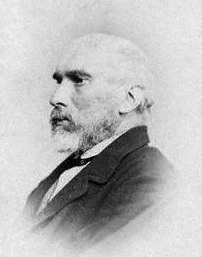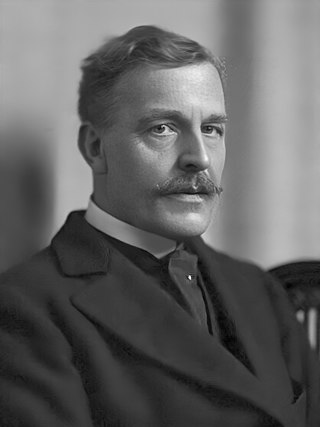Related Research Articles

Frederick Guthrie FRS FRSE was a British physicist, chemist, and academic author.
Frederic Stanley Kipping FRS was an English chemist. He undertook much of the pioneering work on silicon polymers and coined the term silicone.

Sir William Stirling-Maxwell, 9th Baronet, KT, FRSE was a Scottish historical writer, art historian and politician.

Sir James Guthrie was a Scottish painter, associated with the Glasgow Boys. He is best known in his own lifetime for his portraiture, although today more generally regarded as a painter of Scottish Realism.

Masataka Taketsuru was a Japanese chemist and businessman. He is known as the founder of Japan's whisky industry and Nikka Whisky Distilling.

Lyon Gardiner Tyler Sr. was an American educator, genealogist, and historian. He was a son of John Tyler, the tenth president of the United States. Tyler was the 17th president of the College of William & Mary, an advocate of historical research and preservation, and a prominent critic of U.S. President Abraham Lincoln.
Sir Ian Heilbron DSO FRS was a Scottish chemist, who pioneered organic chemistry developed for therapeutic and industrial use.

The Gardiner Chair of Music at the University of Glasgow was founded in 1928 and endowed by the gift of William Guthrie Gardiner and Sir Frederick Crombie Gardiner, shipowners in Glasgow. The chair was previously a joint appointment with the directorship of the Scottish National Academy of Music, although this practice ceased on the retirement of Sir Ernest Bullock in 1952. The current professor is John Butt.

James Buchanan, 1st Baron Woolavington,, known as Sir James Buchanan, Bt, from 1920 to 1922, was a British businessman, philanthropist, and racehorse owner and breeder.

William Albert Noyes was an American analytical and organic chemist. He made pioneering determinations of atomic weights, chaired the chemistry department at the University of Illinois Urbana–Champaign from 1907 to 1926, was the founder and editor of several important chemical journals, and received the American Chemical Society's highest award, the Priestley Medal, in 1935.

Clan Buchanan is a Highlands Scottish Clan whose origins are said to lie in the 1225 grant of lands on the eastern shore of Loch Lomond to clergyman Sir Absalon of Buchanan by the Earl of Lennox.
The Beyer Chair of Applied Mathematics is an endowed professorial position in the Department of Mathematics, University of Manchester, England. The endowment came from the will of the celebrated locomotive designer and founder of locomotive builder Beyer, Peacock & Company, Charles Frederick Beyer. He was the university's largest single donor.

Sir James Walker FRS FRSE FCS LLD was a Scottish chemist. He worked mainly on inorganic and physical chemistry. His major contribution was in the study of chemical reaction kinetics based on a study of the reactions converting ammonium cyanate to urea which was published in 1895 along with Frederick J. Hambly (1878-1960).
James Gardiner was a Scottish farmer and Liberal Party politician.

James Guthrie, was a Scottish Presbyterian minister. Cromwell called him "the short man who would not bow." He was theologically and politically aligned with Archibald Johnston, whose illuminating 3 volume diaries were lost until 1896, and not fully published until 1940. He was exempted from the general pardon at the restoration of the monarchy, tried on 6 charges, and hanged in Edinburgh.

Alexander Beith (1799–1891) was a Scottish divine and author who served as Moderator of the General Assembly of the Free Church of Scotland 1858/59.
Thomas Stewart Patterson FRSE LLD (1872–1949) was a Scottish organic chemist.
John Monteath Robertson was a Scottish chemist and crystallographer. He was the recipient of the Davy Medal in 1960 and president of the Chemical Society from 1962 to 1964.
Edward Frankland Armstrong was an English organic chemist who researched carbohydrates, catalysis, and industrial applications.
References
- ↑ Scotland, National Probate Index (Calendar of Confirmations and Inventories), 1876-1936
- ↑ Ancestry – William Guthrie Gardiner
- ↑ The wreck of the "Morven" [usurped]
- ↑ The History & Constitution of the University of Glasgow